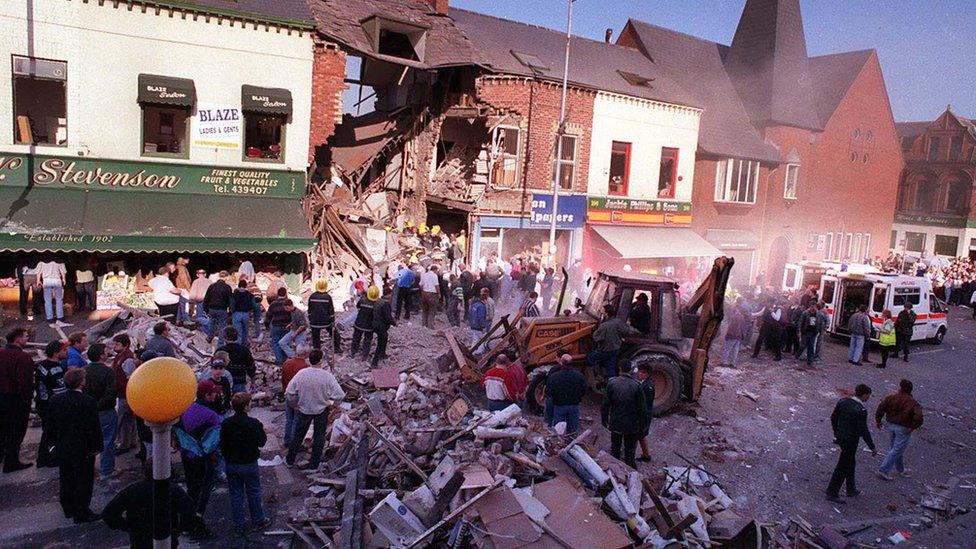Belfast: Families mark 25 years since Shankill bomb
- Published
The Shankill Bomb: 23 October 1993
A service has taken place in Belfast to mark the 25th anniversary of the Shankill bombing.
Nine people were killed in the 1993 attack as well as one of the IRA bombers. More than 50 were injured.
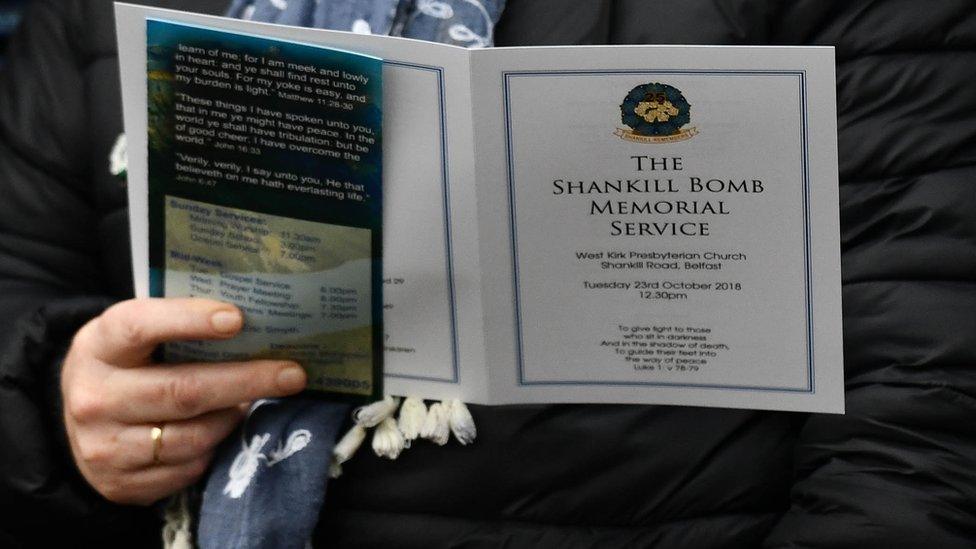
The Shankill bombing happened at Frizzell's fish shop on 23 October 1993.
Two IRA men, Thomas Begley and Sean Kelly, posed as fishmongers and carried the bomb into the shop where shoppers were queuing for food.
DUP leader Arlene Foster and her deputy Nigel Dodds were among those attending the service at West Kirk Presbyterian Church.
Also present were representatives of the Ballymurphy families whose relatives were shot dead in west Belfast in 1971.
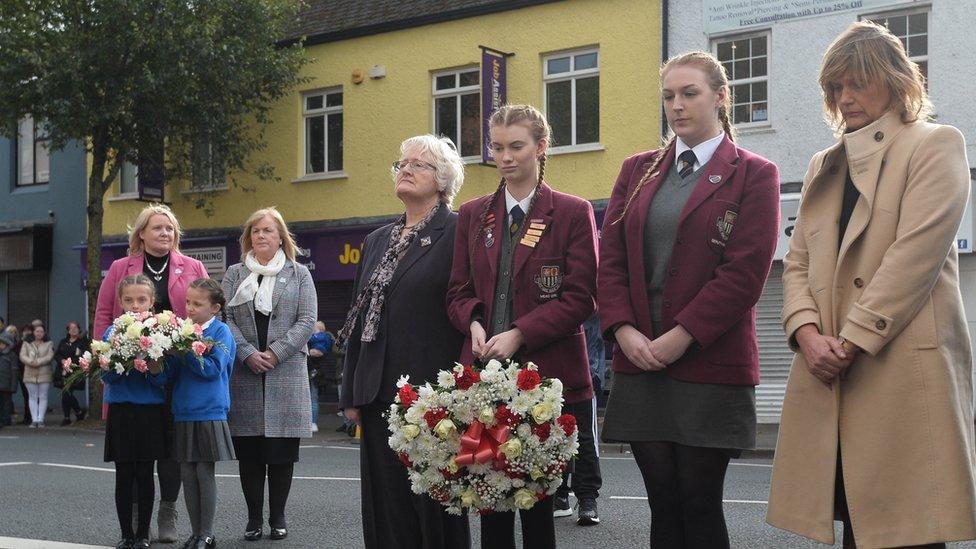
Wreaths were laid at the site of the bombing
Speaking before the service, Alan McBride whose wife, Sharon, was killed in the blast said he felt calm but "deeply frustrated" by the lack of political progress.
He said he had invited Catholic friends including those who had also suffered in the Troubles.
"It's good that we can be together and stand together," he said.
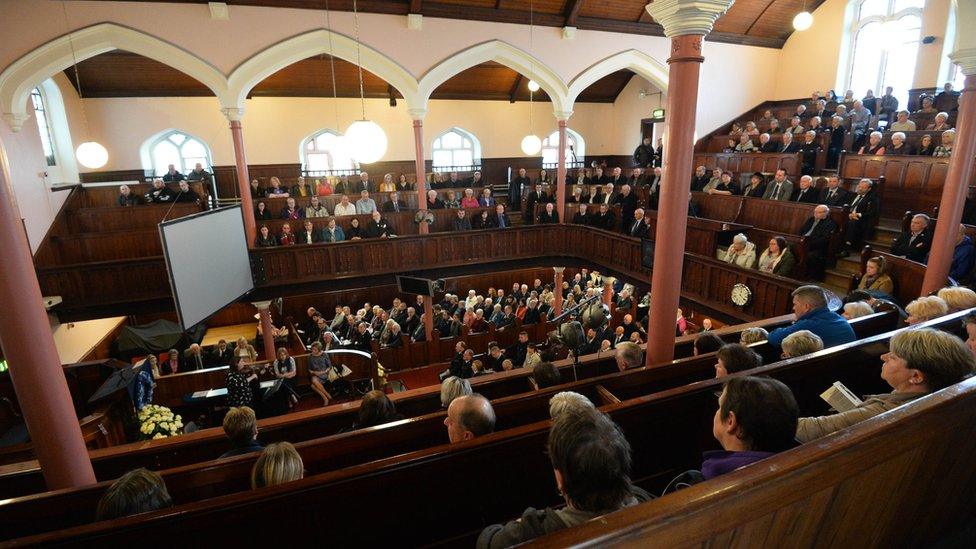
The memorial service was held at West Kirk Presbyterian Church
Mr McBride added: "I realise that if two guys who did the bombing had lived somewhere else they would not have committed those murders - but that doesn't excuse them."
He stressed that this was a time to look forward.
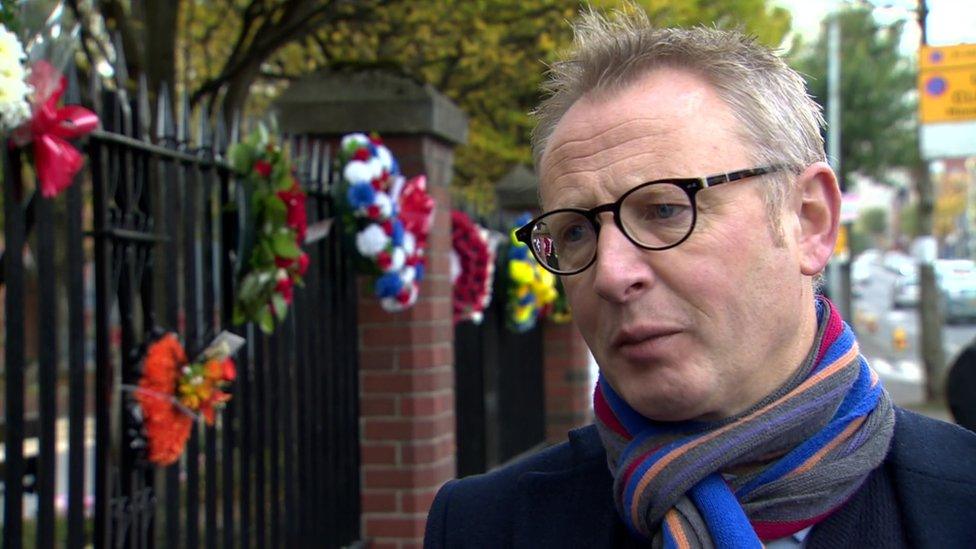
Alan McBride said the lack of political progress was frustrating
"Our politicians just seem to be content just to keep things going the way they are... if they really wanted to sort things out they could, but there doesn't seem to be the will."
The victims
The victims of the Shankill bombing included John Frizzell, 63, who owned the fish shop. His daughter Sharon McBride, 29, was helping her father and was also killed.
Michael Morrison, 27, his partner Evelyn Baird, 27, and their daughter, Michelle, 7, died. Their two other children were left parentless.
George Williamson, 63, and Gillian Williamson, 49, were out shopping when they were both killed in the blast, leaving behind two children.

Michelle Baird died alongside her parents. She was seven years old.
Wilma McKee, 38, was walking past the shop when the bomb went off. She died a day later from her injuries.
Leanne Murray who was 13 years old was also killed.
Her mother, Gina, later realised that IRA bomber Sean Kelly had pleaded for her help after the explosion.

Leanne Murray, 13, was out shopping at the time of the explosion
In a recent interview, when she was asked what she would say to Sean Kelly now if she saw him, she replied: "I don't think I would have words for him.
"We will suffer until the day we die."
One of the bombers, Thomas Begley, was killed in the explosion.

Analysis: Brian Rowan, Former Security Correspondent, BBC News NI
The Ulster Freedom Fighters (UFF) had threatened to "intensify and widen" its campaign "to a ferocity never imagined".
And, as the year unfolded, its "war commentary" detailed its attacks on republicans and the nationalist community.
At the time, [UFF leader] Johnny Adair, spoke to me of attacking Sinn Féin at "the top, middle and bottom of the ladder".
The statements became more political - referencing the Hume-Adams-Dublin talks of that time and a pan-nationalist front in "ruthless pursuit of the common goal of a united, Gaelic Ireland".
A UFF codeword "crucible" - now defunct - was the means of authenticating the many statements of this time.
The IRA said it was "determined to exact a price" from loyalists - that there would be "no hiding place"; this warning part of an interview just days before the Shankill bomb.
As the carnage of that attack became clear, the IRA spoke of an operation that "went tragically wrong".
But had it gone tragically wrong or was it the inevitable outcome of their actions?

Kelly was the other bomber who was pulled from the rubble of the collapsed building.
He received a total of nine life sentences for his role in the attack but was released early in July 2000, under the terms of the Good Friday Agreement.
He later apologised for the Shankill bomb.
- Published23 October 2018
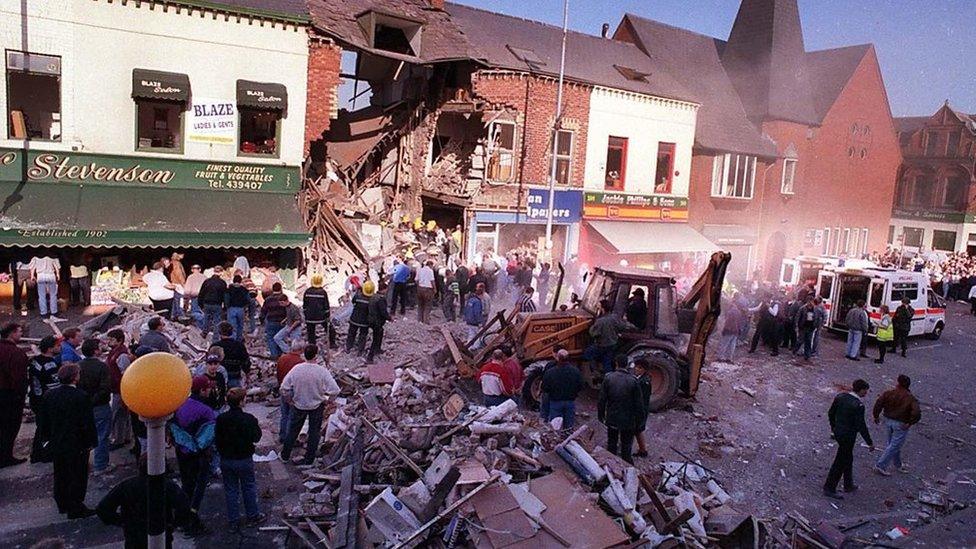
- Published23 October 2018
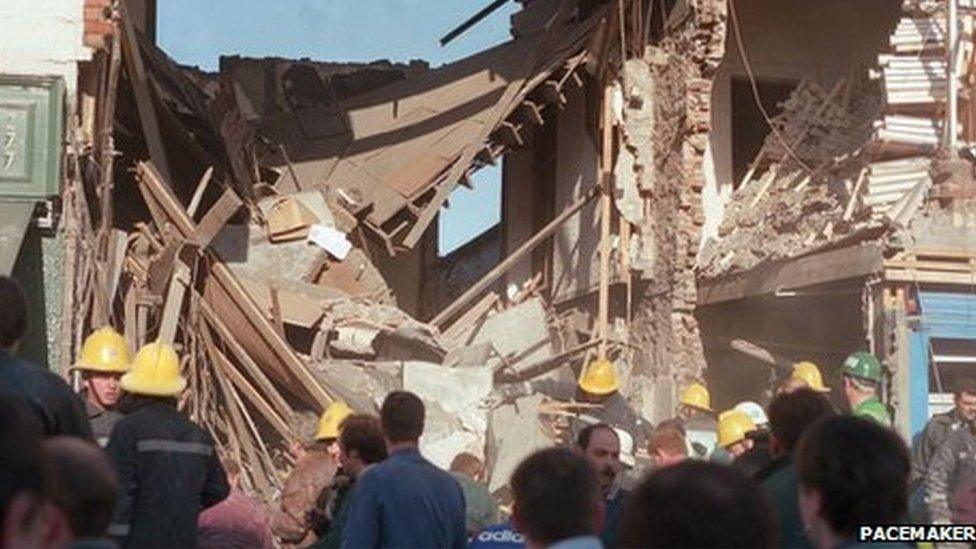
- Published21 October 2018
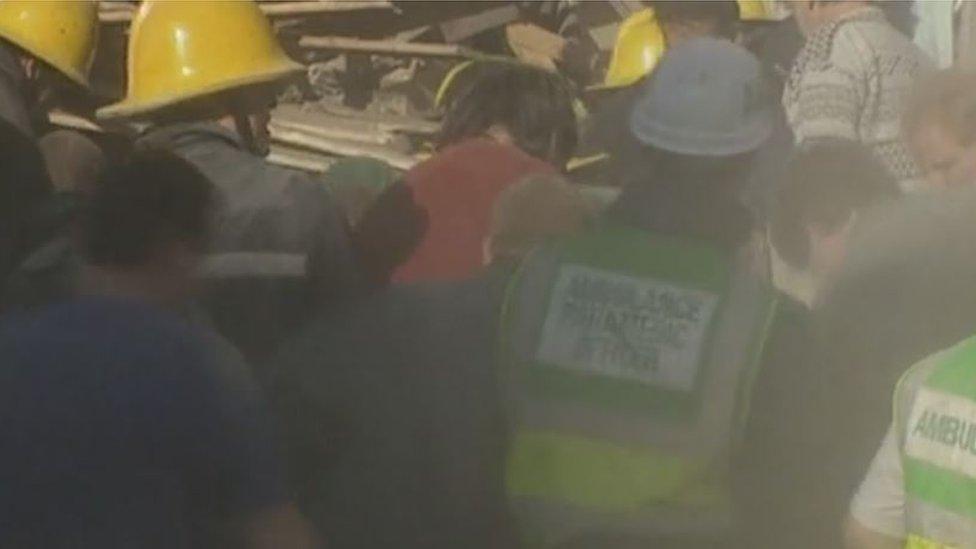
- Published22 October 2018
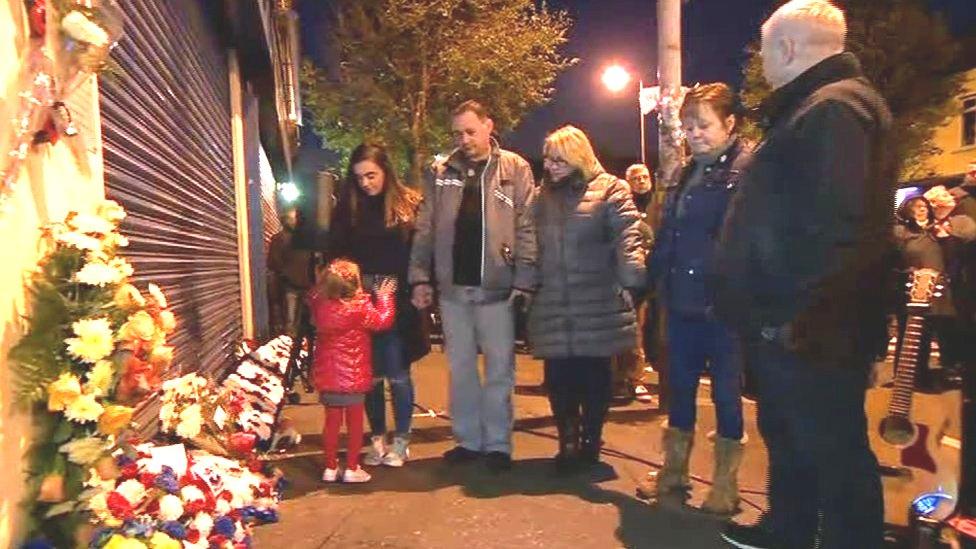
- Published20 October 2018
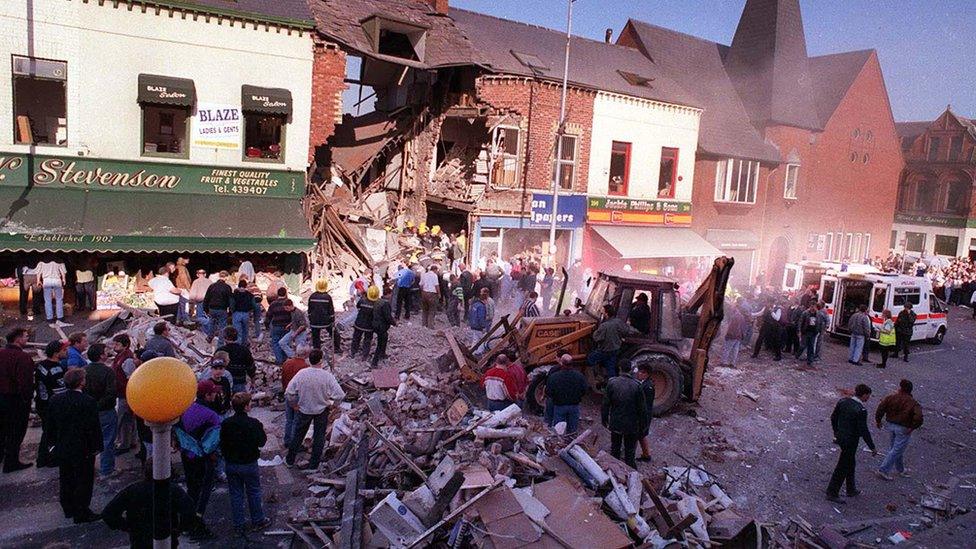
- Published27 January 2016

- Published23 October 2013
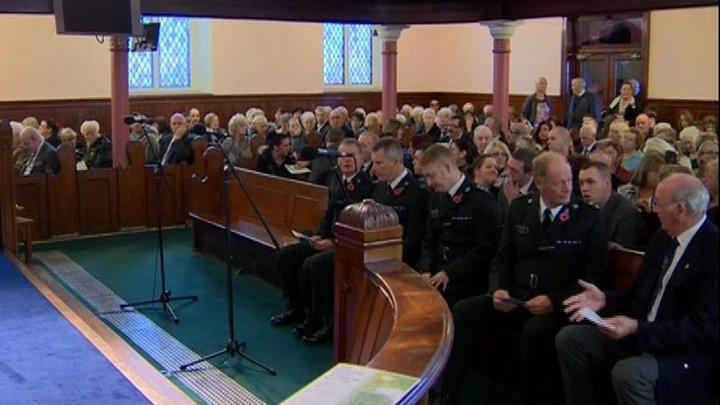
- Published25 January 2016
